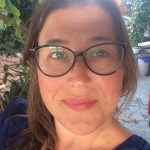I didn’t read a book about writing until I was well into my twenties.
For as far back as I could remember I desperately wanted to write and I had, throughout my teens, scribbling diaries and long short stories and poems in lined exercise books on my bed after school.
If you want to write, people will tell you to study literature, but while a degree in English Literature inevitably improved my critical faculties, it brought an end to the writing—because I became aware that most of what I wrote for myself wasn’t any good.
Back then, there weren’t websites for writers and if there had been, I might not have visited as I was still in love with the idea of creative genius. I thought I had to wait for a brilliant idea and let it burst out of me. But it didn’t. I got the odd line down here and there, but I mainly I didn’t write anything. I was frightened of failing at this thing that meant everything to me.
Anyway, after university, I saved up to go travelling. I desperately wanted to be the female Ernest Hemingway. Forgive me. It was the late nineties, and I was twenty-one, and I didn’t know any better. I guessed Hemingway hadn’t read any books on how to be a writer, so neither did I. Instead I tried to live like I thought Hemingway would live if he were me, and that absolutely sucked, just so you know.
Eventually, I was staying in a friend’s house in Brisbane and on his bookshelf, next to The Home Cheesemaker, was The Artist’s Way by Julia Cameron (a thousand thank yous Murray Goodchild, for this and everything else). It asked me to nurture my ‘inner-artist child’ and ‘identify the critic’ and quite a few other things that made me deeply uncomfortable and caused the ghost of Ernest Hemingway to snort his head off, but I did the exercises, and they worked, and I started –little by little– to be able to write again.
So, if you meet the Buddha (or Hemingway) on the path, kill him (thanks again Murray). And below you’ll find a list of the books on writing I have found helpful.
Love Vic x
If you’re struggling with writer’s block…
Becoming a Writer by Dorothea Brande
A seminal guide to overcoming resistance and getting words on the page by the fabulously straight-talking Dorothea Brande. The first person to talk about morning pages, Brande also offers a step-by-step no nonsense guide to creating a writing practise, achieving artistic discipline and developing ideas.
The Artist’s Way by Julia Cameron
A bit San Francisco for many people’s tastes but highly effective. It prescribes morning pages, artist dates, positive thinking and valuing creativity for what it can do for your soul, not your ego. It helps you analyse why you may be resistant to writing and how this resistance can be unpicked.
If you’re looking for creative writing prompts…
What If? by Anne Bernays & Pamela Painter
Excellent book full of exercises to spark inspiration, construct and flesh out characters, mine memory, develop settings, work up dialogue, address POV, etc. – along with some good advice about journal writing, beginnings, imitating your heroes, with extracts from published works to demonstrate what each exercise is getting at. Not all the exercises appeal but when you’re stuck or feeling devoid of inspiration, there’s something here to get things moving and some well-chosen quotes from Nabokov, Fitzgerald, Atwood, et al.
The Five-Minute Writer by Margret Geraghty
Short playful exercises that can be done in 5 minutes. These are useful for when you’re feeling so artistically crippled that writing anything feels beyond you. Also, there are some good ideas here to incorporate into morning pages.
If you want to study the craft…
Gotham Writers’ Workshop – Writing Fiction
Each chapter here focuses on a different element of the craft, from POV to plot, from description to revision. Featuring examples, explanation and exercises, this is a hugely helpful book. Look on it as a gym for authors, with each chapter working to improve a different muscle group.
The Creative Writing Coursebook: Forty Authors Share Advice and Exercises for Fiction and Poetry –ed. Julia Bell and Andrew Motion
Produced by the tutors of the UK’s most famous Creative Writing MA (at UEA), this book is divided into 3 sections: gathering, shaping and finishing. Contributions from forty authors provide a unique and generous pool of information, experience and advice and there are plenty of exercises to try out.
Reading like A Writer by Francine Prose
If you want to get better as a writer, start looking at books like a builder looks at a house, or a mechanic looks at a car. If you want to write short stories, buy an anthology of brilliant stories and take them apart. Create a spreadsheet – count the words, name the POV, note how much dialogue there is, note how the author deals with time, identify what is interesting about the story that makes you read on. Or take a favourite novel and count the words, then the number of chapters (how long is the shortest, how long is the longest?), the number of major characters, at what point the climax comes … everything. You need to know everything. This guide by Francine Prose will get you started, get you looking closely. You wouldn’t build a barn without going and taking a very close look at a couple of barns now, would you?
And here are some books of writers on writing…
Sometimes writing makes me feel a bit crazy. Now and again, I like to read what it’s like for other writers. It cheers me up, but it also unsettles me, so I don’t do it too often.
Bird by Bird by Anne Lamott
Pretty much the best I’ve come across, this book addresses everything from the dangers of perfectionism to the non-event of publication day. More than anything, it reminds us to stop overthinking things and just get out of the way of the work – at least until you have a first draft.
On Writing by Stephen King
Very few writers are like Stephen King. It’s fair to say he’s an outlier – precocious, prolific and very, very rich! Still, it’s unputdownable, and King doesn’t stint on advice.
Negotiating with the Dead by Margaret Atwood
It’s by Margaret Atwood FFS.

VICTORIA GOSLING is the founder of The Reader Berlin and The Berlin Writing Prize. Her debut novel is forthcoming from Serpent’s Tail in the UK (2020) and Henry Hudson in the US (2021). She is represented by Judith Murray of literary agency Greene & Heaton.
Alongside directing The Reader’s day-to-day activities, Victoria works as a freelance editor, writer and consultant and is a former contributing editor of Berlin Stories for NPR. Offering manuscript assessments, mentoring, expert feedback and guidance, she has worked with hundreds of writers and consulted on a wide range of publications currently available in print and online.


